As we remember the start of the First World War, we are again reminded of the poignancy of the red poppy and how significant this was to so many of our soldiers. Some forward thinking councils have planned memorial areas and parks in time for this years events and I am sure we will see further displays spread across the nation throughout the next four years in time for the centenary anniversary of the end of WW1.

We have learnt a great deal about poppies this year working on two separate projects for councils. The common poppy is an annual wildflower, a showboat of red which normally flowers in late June and July. They are however notoriously difficult to germinate and conditions need to be just right. A poppy will produce and disperse up to 17,000 seeds but a much smaller percentage will actually germinate the following year. In fact seeds can lay dormant for many years and still be viable to germinate up to 100 years later.
We have worked with two different councils this year to help them create a more thoughtful approach to a poppy display that will provide a trustworthy result than simply throwing down seed. The first project was in conjunction with Gavin Jones, a company that we had worked together with on the Olympic Park. Witney Town Council had asked them to create a number of different poppy displays and they were keen to deliver a beautiful display and asked us to get involved.
The second project was with Basingstoke and Deane District Council who similarly were creating displays in a memorial park and on a roundabout, having started a number of seeding projects with mixed results they were keen to establish better practices for creating more effective wildflower displays. Whilst wildflower seed is relatively cheap and seemingly low in effort there is little guarantee that a successful display will establish and they felt it was worth acquiring some expertise. We were able to help them with both training and a specific wildflower solution.

The battlefields of the first world war were predominantly grassland and would not necessarily have had many poppies prior to the start of the war as perennial grasses would have dominated. With the constant disturbance of soil in the battlefields, the perfect seed bed was created and enabled the successful germination of fields of poppies.
Poppies are known to be poor at germinating so there is a tendency for landscapers to increase the seed rate, however this can have detrimental effects that we shall explore a little later. Rather than increasing the seed rate more thought should be given to creating the right conditions for the seeds. The need for a completely clean area is paramount. A well prepared dug over seed bed provides the ideal conditions for many rampant annual weeds and flowers such as thistle and fat hen. Thistles have wind born seed which makes the seed more mobile, so without ridding an area of these first they will soon start to take over again. This accounts for many failed annual wildflower projects and was a factor in one site we have worked on this year. It has been a learning process and we will be vigilant with the advice we give to councils for similar projects.
Poppies, once established have a glorious but short life span. They put all of their effort into creating a beautiful flower to ensure pollination and once seed is produced their life is over. You can expect most wild poppies to flourish in June and July. However, they are also very delicate and prone to damage with heavy rainfall. Therefore we worked on a seed mix that would provide plenty of red colour but perhaps would guarantee a longer period of flowering with some variation in species to give a more assured result.
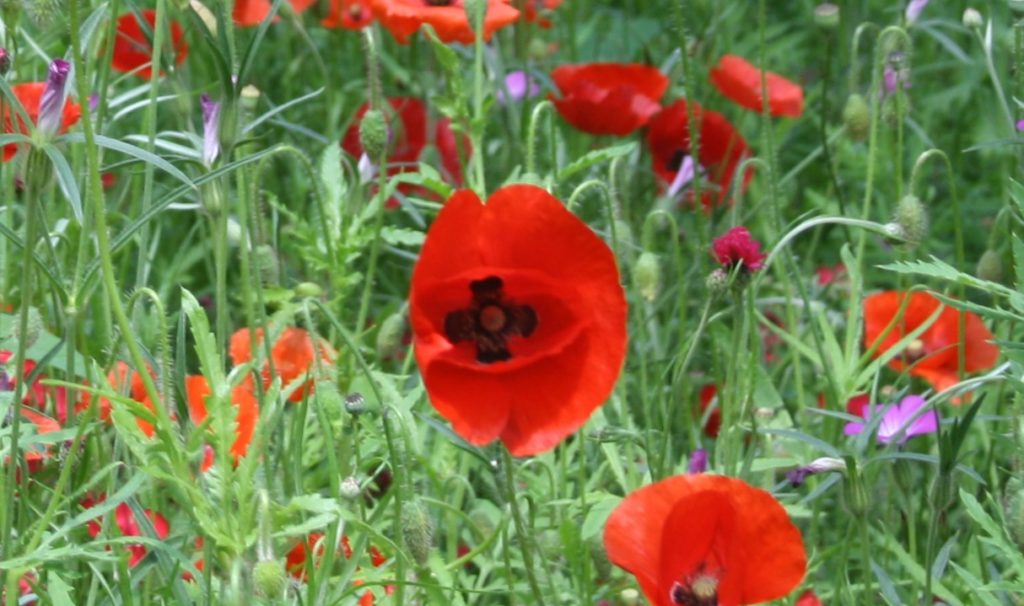
We used a mix of four different types of poppies including the beautiful corn poppy variety. (seen above) We also added in scabious, flax, corncockle and cosmos in complimentary shades of deep pink/red and spent a lot of time looking at the seed and fertility rates. If the seed rate is too high, establishment of the area is quick but soon starts to get too overcrowded. If growing conditions are good, the plants will get leggy, competing for light and moisture and are likely to fall over before flowering has finished. Fertility is also an issue and whilst there needs to be fertility present, too much means they grow too big before flowering and again are prone to wind and rain damage.
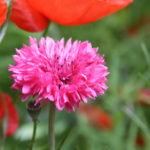
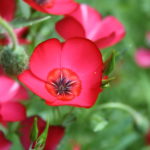
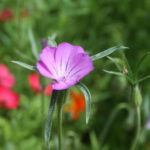
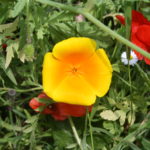
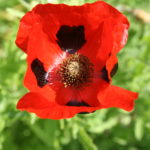
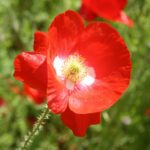
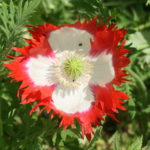

Both the Witney and Basingstoke Council displays have proven to be hugely successful, the pictures speak for themselves. There is something so compelling about a swathe of poppies and we are delighted with the enthusiastic feedback we have received from a variety of different parties. Both sites were at their very best from mid June and throughout July and so it is important to consider sowing times and any prime dates in the event calendar. Sadly the poppies are fading now and as much as it is the natural lifecycle of a poppy we are looking at ways to further extend the flowering season with strip sowing. Below are a selection of pictures taken from both Basingstoke and Witney sites.
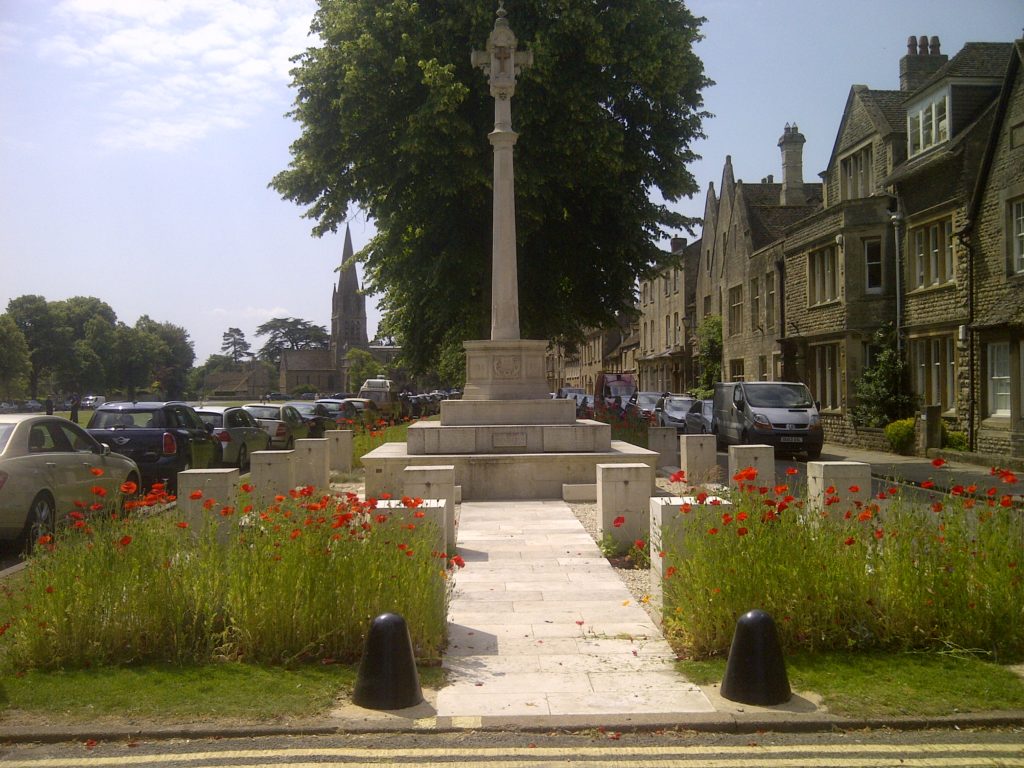

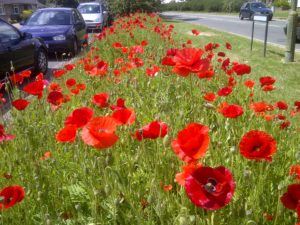
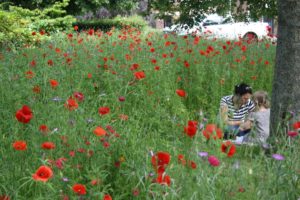



We are now bringing our expertise and experience of creating wildflower spaces for public areas together in a day specifically designed for those with responsibilities for the development of naturalised planted areas in parks, public spaces and highways. The day will be run from our wildflower nurseries in Hampshire on Friday 26th September. If you work for a council and are in the midst of planning wildflower and or poppy areas for next year perhaps you should consider coming along for the very best advice on creating successful and spectacular displays.
Please get in touch with Helen for further details. You can contact her by filling out our enquiry form or call 01256 771222.